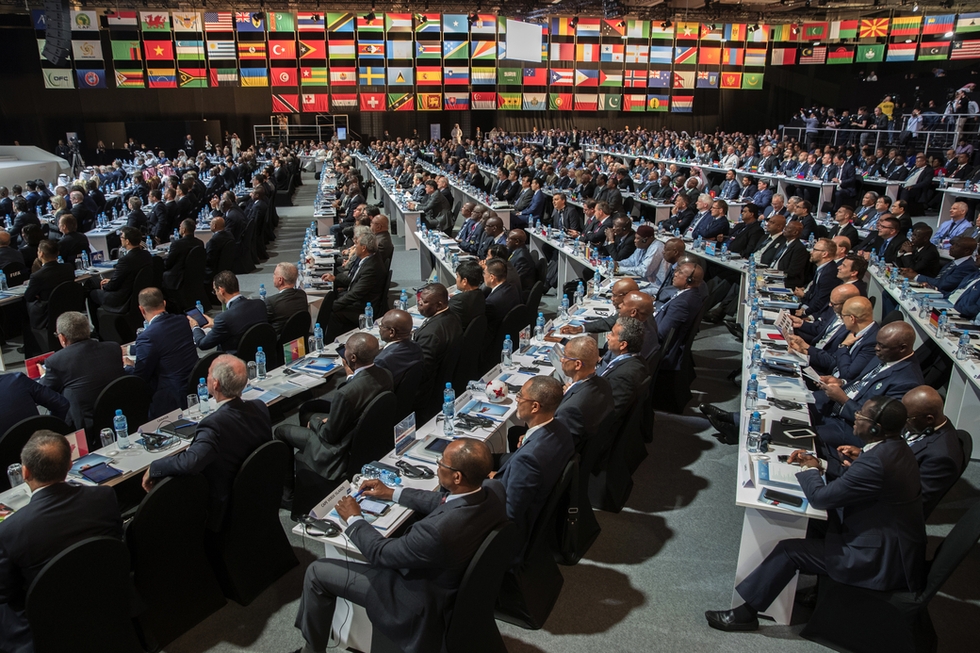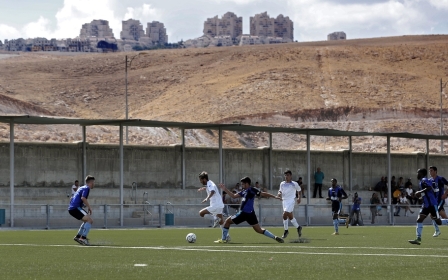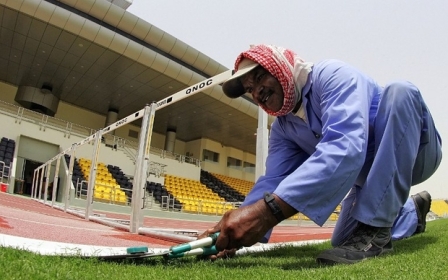Bahrain bans activist from raising Israeli settlements at FIFA summit

Bahraini authorities blocked entry to a Human Rights Watch researcher planning to attend a conference for world football governing body FIFA to protest over its inaction against clubs based in illegal Israeli settlements in occupied Palestinian territories.
Omar Shakir, an American citizen, arrived at Manama airport on 9 May and identified himself to border authorities as Human Rights Watch’s researcher for Israel and Palestine, and indicated that he had come to hold meetings on the margins of the 67th FIFA congress.
His ban from Bahrain comes days after FIFA removed from the meeting agenda a resolution that would have urged Israel's football federation to stop sponsoring clubs based in settlements in the illegally occupied West Bank.
FIFA guidelines ban national associations from registering teams on other associations’ territories.
Shakir had planned to urge FIFA decision-makers to adopt the resolution at its congress.
“Bahrain has yet again shown its intolerance of human rights advocates,” said Sarah Leah Whitson, Middle East director at Human Rights Watch.
The rights group has urged FIFA to take action against settlement clubs.
"Any lingering doubt about whether FIFA should continue to sponsor matches in Israeli settlements in the West Bank should have been erased last month when the United Nations Security Council voted to reaffirm the unlawfulness of settlements, established on occupied Palestinian land," Sari Bashi, the rights group's Israel-Palestine advocacy director, said in January, referring to the December 2016 UN resolution.
Israel's prime minister, Benjamin Netanyahu, warned the FIFA president Gianni Infantino in a phone call on Sunday that the Palestinian resolution could "ruin FIFA", Haaretz reported.
"The Palestinian conflict is long term and FIFA isn't going to solve it," Netanyahu told the FIFA president, according to the Israeli newspaper.
Middle East Eye propose une couverture et une analyse indépendantes et incomparables du Moyen-Orient, de l’Afrique du Nord et d’autres régions du monde. Pour en savoir plus sur la reprise de ce contenu et les frais qui s’appliquent, veuillez remplir ce formulaire [en anglais]. Pour en savoir plus sur MEE, cliquez ici [en anglais].




